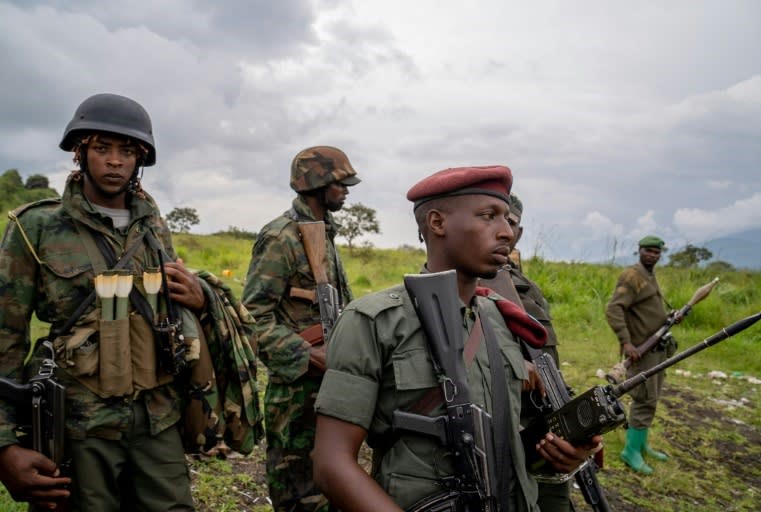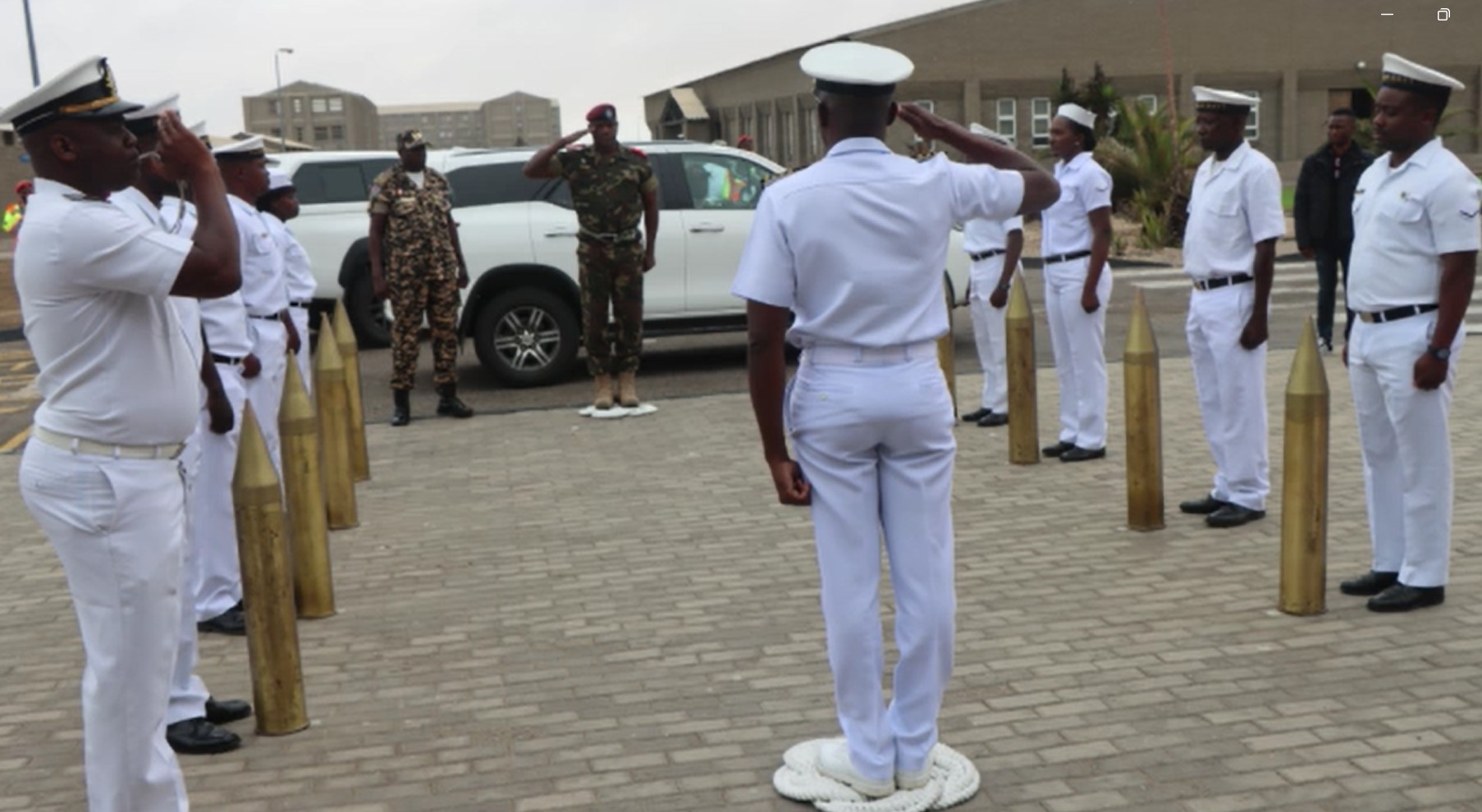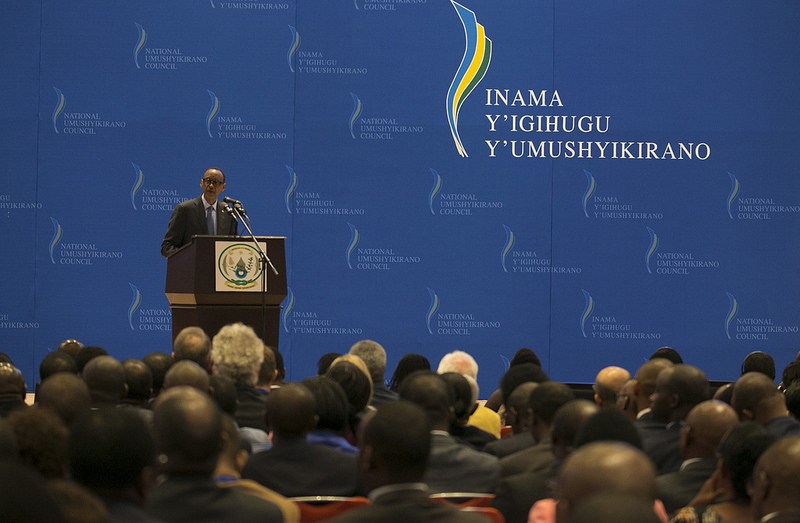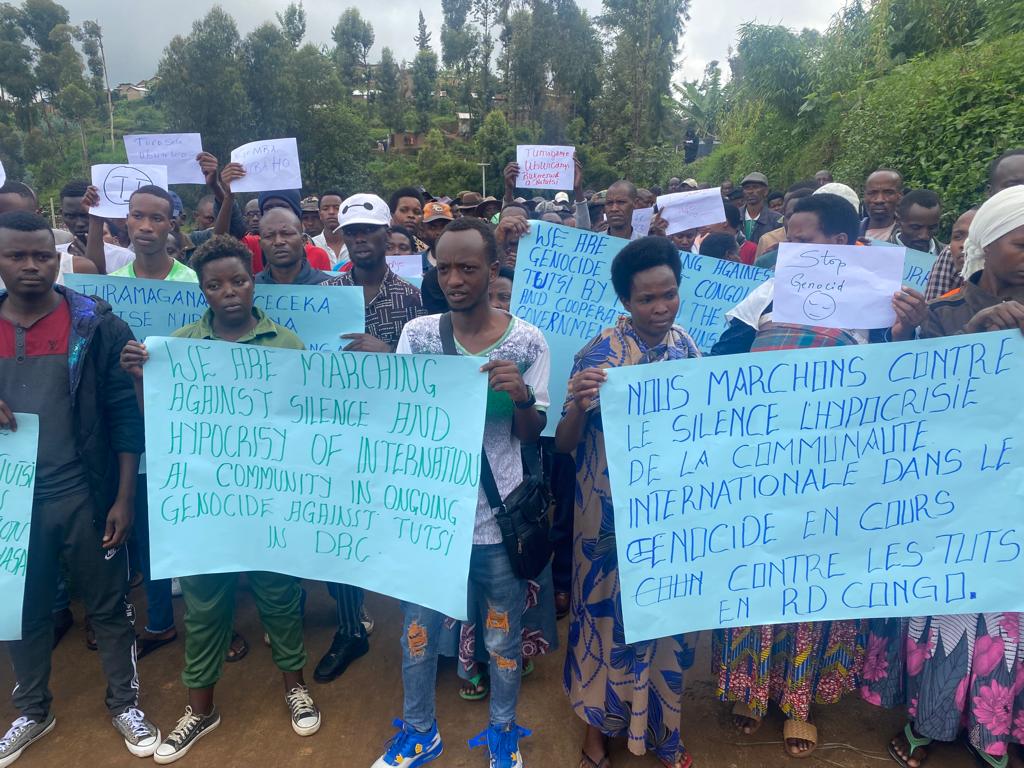Regional
DRC: MPs pressure Tshisekedi to embrace peace

Despite the deployment of the East
African Community Regional Force (EACRF) to bring peace in eastern DRC,
fighting still continues between a coalition of the government forces-FARDC,
foreign mercenaries, FDLR, Mai Mai versus the M23 rebels who have gained more
territory after they
captured the Bunagana border post on June 13, 2022.
In a new twist of events, it appears that DRC politicians are
beginning to realize the mistakes of president Tshisekedi who refused to talk
peace, believing that war is the ultimate option that can bring peace in eastern
DRC.
In an open letter to
President Félix Tshisekedi, dated February 28, 17 provincial members of
parliament in North Kivu asked the Congolese leader to address the root cause
of the insecurity in eastern DRC.
The lawmakers also asked Tshisekedi
to support “a peaceful resolution” of the crisis to avoid further suffering.
The fact that the MPs
resorted to writing an open letter to their president shows some degree of
frustration and an indication that there is no other channel of communication
between the North Kivu MPs and their own President.
Normally in any
functioning governance system, an open letter by MPs to their president is a
disgrace.
Under normal
circumstances, the MPs would seek for an audience with the president and then
discuss political issues in their constituencies since they know better what
happens there since they are more connected to the people.
In one of their
recommendations to Tshisekedi, the lawmakers asked him to “analyze the root
causes of the prolonged presence of the FDLR and ADF in order to return them to
their countries of origin.”
The FDLR is a militia
group formed by remnants of the perpetrators of the 1994 genocide against the
Tutsi in Rwanda. It has ever since been given a safe haven in eastern DRC where
it corroborates with the Congolese army, FARDC, especially in their current persecution
of Rwandophone communities in the region.
Rwanda has long
exposed and denounced the collaboration between the Congolese army and the FDLR.
Their plan is to return to Rwanda to continue their genocidal agenda. The
MPs are concerned that the war provoked mistrust that is likely to derail all efforts by
national, regional, African and international institutions to bring peace to
eastern DRC.
The refusal by Tshisekedi’s
government to recognize the M23 rebels as legitimate Congolese but instead
brand them as “terrorists” will prolong the war and suffering of people in
eastern DRC.
Congolese leaders, civil society
actors and security officials are propagating hate speech and inciting discrimination,
hostility and violence against Rwandophones.
In January 2023, the UN special
advisor on genocide prevention, Alice Wairumu Nderitu, warned that in eastern
DRC civilians are killed
based on their ethnic identity,
which serves as a warning in a region with genocide history. It goes without
saying that the genocide ideology was brought by the FDLR into DRC.
Despite
the fact that FADRC and its allies have proven to be militarily weak against
M23 rebels, Tshisekedi does not seem to be interested in peaceful settlement of
the conflict in eastern DRC. He wants the crisis to continue to serve his
political interests.
In a
recent public statement, the DRC deputy chief of General Staff in charge of
operations, General Chiko Tshitambwe said that he was in talks with some member
states in the Southern African Development Community (SADC) under a bilateral
arrangement asking them to deploy forces in DRC to fight M23 rebels and Rwanda.
All
efforts aimed at solving the crisis in eastern DRC have recommended the
peaceful path as opposed to a military solution. But Tshisekedi refused to
listen.
While
speaking on the sidelines of an African Union
event in Nairobi in February, the EAC Secretary General, Peter Mathuki, said that
the bloc would not relent on peaceful means of resolving the DRC crisis.
On his part, the commander of EACRF
Maj-Gen Nyagah said that: “The first priority is the political process
including the Luanda and Nairobi processes. Sometimes war does not necessarily
bring peace. There is disarmament and demobilization. Only if both options fail
can we move to an offensive and military option. It’s not just focusing on the
M23. We have over 120 armed groups here.”
And M23 leader Bertrand Bisimwa also said that they are committed to dialogue to resolve the crisis.
But if Kinshasa chooses war, it must assume the whole logic of war where, “the strongest wins. As a result, Kinshasa will no longer have to claim withdraw from territories lost.”
Ironically, Kinshasa says it no longer thinks of the possibility of reintegrating the M23 rebels into the national army, meaning that political negotiation is not an option.
If Tshisekedi
has refused to listen to advice from regional leaders, will he listen to his
own Members of Parliament?




.jpeg-20230228104008000000.jpeg)



.jpeg-20230224104259000000.jpeg)

.jpeg-20230222113211000000.jpeg)

.jpg-20230221102203000000.jpg)